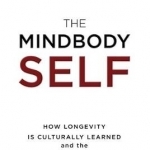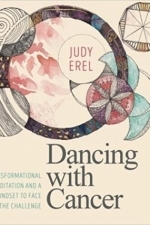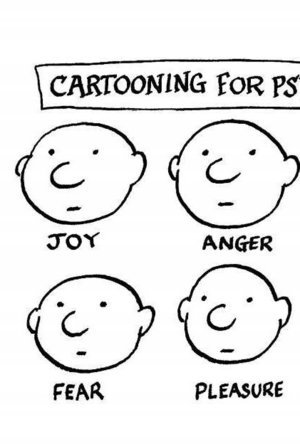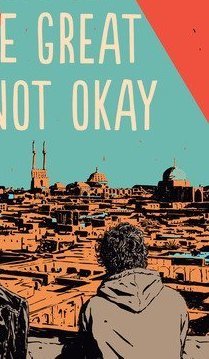
Data Mining in Biomedical Imaging, Signaling, and Systems
Sumeet Dua and U. Rajendra acharya
Book
Data mining can help pinpoint hidden information in medical data and accurately differentiate...

On the Way to Myself: Communications to a Friend
Book
Originally published in 1969, Dr Charlotte Wolff was the author of three books of psychology: The...

Food Allergies: A Complete Guide for Eating When Your Life Depends on it
Book
Posing the urgent questions that anyone with food allergies will think to ask-and then some- Food...

The Mindbody Self: How Longevity is Culturally Learned and the Causes of Health are Inherited
Book
In these turbulent times, just about every solution you can think of has been put forth by someone,...
LaBMaC (116 KP) rated Psychopath with Piers Morgan (Crime Documentary) in TV
Jul 10, 2019
Piers, revealing that Paris has a 'genius' level intellect.. an IQ score of 141 'wants to find out how their (psychopaths) minds work'.
When Piers opens the interview, in which he is separated from Paris by 'toughened glass', Paris begins with 'Since this is going to be done for ITV would you like me to speak in Queens English'. The comment, clearly planned, is blurted out almost in excitement and followed with a self-satisfied smile. Immediately, arrogance comes accross reflecting his narcissism.
This interview is mesmerising in that, despite his attempts to control his responses, you see the presentation of psychopathy quite clearly in the detachment and monotone used by Paris in describing horrific acts.
The documentary provides context by showing videotaped interactions between Paris, his sister and his mother which while appearing normal and happy, contained the odd disturbing comment from Paris that may have revealed his mindset. For example, to his mother:' what is your favourite sentence?,' I don't know ',' kill Charity's children? '.
Piers carries it out in a professional manner, calmly yet assertively seeking information. However the focus of his questions, on asking Paris to describe emotions, while helping to reveal the nature of psychopathy, do seem unfair.
One of the most disturbing aspects of this documentary is the fact that Charity, who has another child, has not only remained in contact with Paris but that she encourages his contact with his sibling rather than putting as much distance between him and Paris as possible.
Because Paris was a juvenile when convicted he will be up for parole in a few years in spite of his diagnosis.

Essential Oils Reference Guide to Young Living Oil
Health & Fitness and Lifestyle
App
"I love that I can look up a condition and get list of oils for treatment!" - ◆◆◆◆◆ ...

Dancing with Cancer: Using Transformational Art, Meditation and a Joyous Mindset to Face the Challenge
Book
Combining the personal and the practical, this book mixes the author’s own cancer story with the...
mind spiritual leisure

The Sugarless Plum
Book
It started as the perfect story. Zippora Karz was a member of the famed New York City Ballet by the...

Thirty Year Itch by The Wildhearts
Album
'Ginger gave me two instructions: 'Loud guitars and loud crowd' .I didn't have a choice in either as...
Goddess in the Stacks (553 KP) rated Darius the Great is Not Okay in Books
Dec 25, 2018
Darius is a great main character. He's funny, self-deprecating, and complex. He has clinical depression, is medicated for it, and can sometimes tell when it's the depression making him think a certain way, but sometimes he can't. He's biracial, visiting Iran and his mother's Persian family for the first time, and adjusting to Persian social norms and traditions while trying not to lose sight of his American life. His connection with his father is tenuous and fraught with miscommunication, and lot of the book is spent wrestling with that relationship. His new friend, Sohrab, is a great foil to that, as his father is completely absent from his life, having been arrested and thrown in jail prior to the start of the story, largely for being in the wrong place at the wrong time, and being part of a minority religion.
There are so many small things touched on this book - suspicion at customs when flying through, bullying at school for being Persian, not speaking his family's language because his mother didn't teach it to him (and feeling cut off because of it) - all little things that a lot of immigrant children deal with.
Aside from the cultural things the book addresses, there's also the mental health aspect. Both Darius and his father have clinical depression, and there's stigma attached to having the diagnosis, and to taking pills for it. We see how their mental states affects their relationship with each other and with the rest of their family, and it's quite powerful. The author talks about having clinical depression in an afterword, and includes some resources that helped him. This is an #ownvoices novel in more ways than one, and it really shows. Excellent book.
You can find all my reviews at http://goddessinthestacks.com

